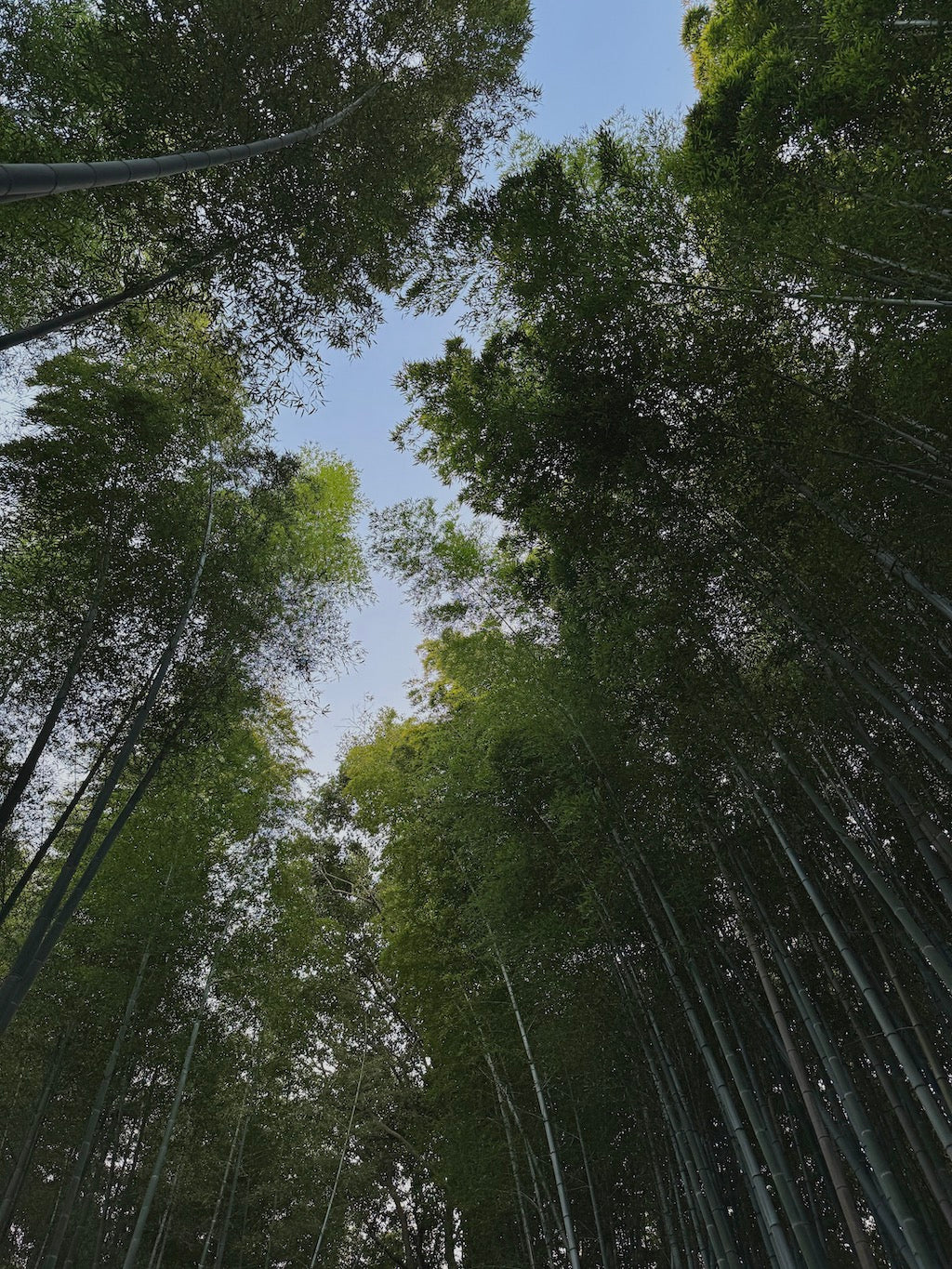In the realm of sustainable and eco-friendly materials, bamboo stands as a true champion, offering a wide array of benefits that not only make it a popular choice for various applications but also a key material used in many of our plastic-free products.
One of the primary reasons for bamboo's popularity is its sustainable nature. Let's delve into the factors that make it an eco-warrior in the world of materials.
Rapid Growth
Unlike traditional hardwood trees that take decades to mature, bamboo shoots can reach full maturity in just a few years. Some species of bamboo can grow up to 91 cm (36 inches) in a single day! This rapid growth ensures a constant and sustainable supply of bamboo.
Low Environmental Impact
Bamboo cultivation requires minimal water and fertilizers, and doesn't need pesticides- further reducing the environmental footprint compared to other crops. Additionally, bamboo's deep root system helps prevent soil erosion and promotes healthy soil.
Carbon Sequestration
Bamboo is a champion in carbon sequestration. It absorbs more carbon dioxide (CO2) and releases more oxygen (O2) into the atmosphere than most other plants, making it a valuable ally in the fight against climate change.

Renewable Resource
Bamboo is a regenerative resource, meaning it can be harvested without harming the plant itself or its surrounding ecosystem. This ensures a continuous supply of bamboo without depleting natural resources.
Bamboo: Stronger Than You Think
The durability of bamboo is a testament to its strength and resilience. Despite its lightweight appearance, bamboo has several characteristics that make it exceptionally durable.
Hardness
Bamboo's natural hardness rivals that of many hardwoods, making it suitable for various applications, including flooring, furniture, and even structural components. It can withstand heavy loads and is more resistant to dents and scratches than some other woods.
Moisture Resistance
Bamboo's natural moisture resistance makes it perfect for areas prone to humidity or dampness. While care must always be taken with exposure to water [see Ultimate Guide to Maintaining Bamboo + Wood Brushes], bamboo is known to be naturally tougher than most when it comes to swelling, warping, or rotting- ensuring its longevity.
Pest Resistance
Bamboo's natural compounds, such as bamboo kun, make it unattractive to pests like termites and insects. This innate resistance reduces the need for chemical treatments, contributing to a healthier environment.
Where Does Bamboo Grow?
Bamboo is naturally grown in various regions around the world, but China is by far the largest producer and manufacturer of bamboo products globally, maintaining 67% of the world's exports. The country's extensive bamboo resources, diverse bamboo species, and advanced manufacturing capabilities have made it a hub for bamboo production. Chinese bamboo factories produce a wide range of products, including bamboo flooring, furniture, textiles, paper, various handicrafts, and our sustainable kitchen brushes, soap dishes, mason jar lids, toothbrushes, hairbrushes, bamboo floss, and more.
About Our Bamboo Sourcing
China's rich history in bamboo cultivation and favorable environmental conditions make it the ideal location for manufacturing most all bamboo products. Producing bamboo domestically would likely still mean importing the raw bamboo material from China. So alas, we have spent countless hours partnering with only the best established and responsible suppliers.
Our Chinese manufacturers prioritize sustainability by employing responsible bamboo harvesting techniques, ensuring regrowth and long-term "forest" health. Please note that bamboo is a fast growing grass (not a tree like in traditional forests), and one of the most sustainable materials on our planet! Additionally, we have vetted our manufacturers via 3rd party organizations for fair labor and working conditions to ensure we are doing our best to not harm people or the planet.

Carbon Footprint
As a company committed to sustainability, we carefully assess the carbon footprint associated with our bamboo products. We prioritize sea freight for transportation due to its lower carbon emissions compared to air freight. Our packaging materials are chosen to be minimal and eco-friendly, further reducing environmental impact. Moreover, we invest in carbon offsetting initiatives to compensate for any unavoidable emissions, thereby promoting a more sustainable approach to business operations.
Transparency
Companies that are transparent about their sourcing and production processes are often more committed to sustainability. Look for brands that openly share information about their supply chain. You will be hard pressed to find "Made in the USA" on ANY bamboo products. Question companies that advertise this as its more than likely not true.
In conclusion, bamboo emerges as a quintessential solution for sustainable and plastic-free living. Its rapid growth, natural properties, and diverse uses make it a versatile alternative to traditional fossil-fuel based materials. By opting for bamboo products, individuals can significantly reduce their reliance on plastic while contributing to conservation efforts and promoting a cleaner planet and greener future for all.

